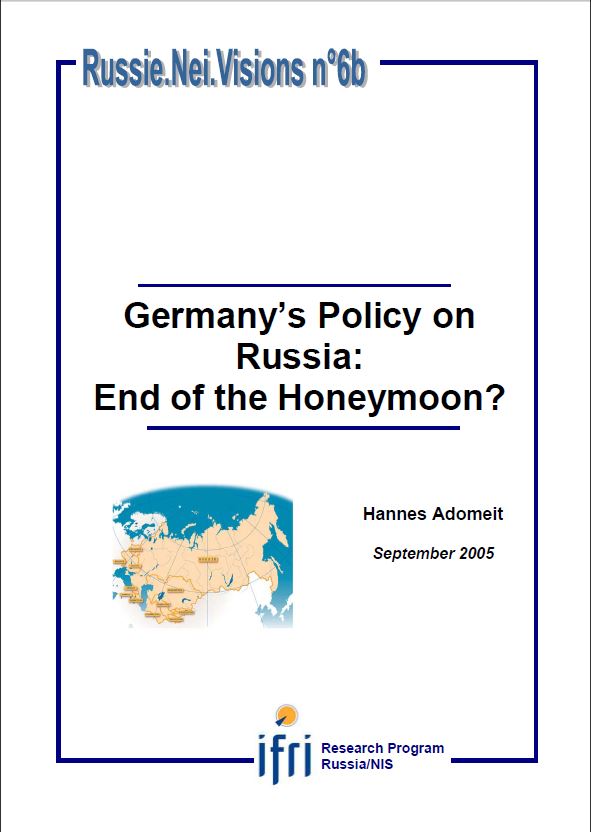Germay's Policy on Russia: End of the Honeymoon?

Original title in German: 'Deutsche Russlandpolitik: Ende des 'Schmusekurses'?'
The developments in Putin's Russia away from democracy and the constitutional state have also placed Germany's policy on Russia under scrutiny. In the run-up to the election to the Bundestag on September 18th, representatives of the opposition parties CDU/CSU and FDP have thus made it clear that they no longer approve of the policy Chancellor Schröder has adopted with regard to Russia. The new EU member states in Eastern and Central Europe are accusing Germany of pursuing a Sonderweg compared with the rest of the EU and attempting to build a special relationship with Russia. This article addresses the question of whether this criticism is justified, and what is behind the 'strategic partnership' that Chancellor Schröder and President Putin have attested to time and again.
Double issue in partnership with the CERFA
Andrei Zagorski, 'Russia and Germany: Continuity and Changes', Russie.Nei.Visions, n.6(a), September 2005
Issue available in French, Russian and German.
Download the full analysis
This page contains only a summary of our work. If you would like to have access to all the information from our research on the subject, you can download the full version in PDF format.
Germay's Policy on Russia: End of the Honeymoon?
Related centers and programs
Discover our other research centers and programsFind out more
Discover all our analysesThe Caspian Sea as an Emerging Energy Hub : Potentials and Limitations
This report analyzes the prospects of the Caspian Sea region — and its key actors except for Russia and Iran — becoming an important energy hub serving the needs of the European Union (EU).
The European Union's Strategic Test in Georgia
The political crisis brewing in Georgia is of an existential nature for the country. What is at stake is Georgia's future as a democratic and sovereign European nation (EU).
Commanders of Putin's Long War: Purged, Reshuffled and Disgruntled
The trend of reshuffling the Russian top military command in the course of a fast-evolving and far from successful war has progressed unevenly both across the Armed Forces’ structures and in time. The rationale for and timing of the abrupt cadre decisions made by Commander-in-Chief Putin often defy logical explanation, and the rare official clarifications are no more informative than the usual information blackout.
Russian Military Manpower After Two and a Half Years of War in Ukraine
In addition to a military victory in Ukraine, the Russian leadership is planning to build up sizable troop formations for a possible conflict with NATO in the Baltic region and the Kola Peninsula. In particular, current plans aim for the military manpower to grow by about 350,000, reaching a total of 1.5 million soldiers and commanders. In the context of the current conflict in Ukraine, this cannot be accomplished without a new wave of mass mobilization.









